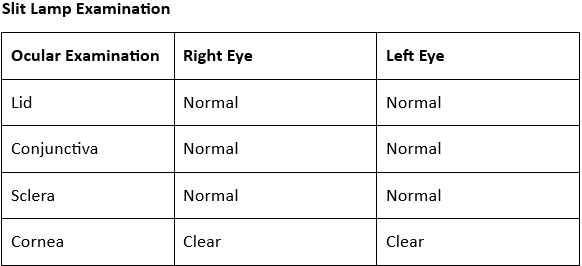Management of Nimesha (Blepharospasm) through Ayurveda - A Case Study
DOI:
https://doi.org/10.21760/jaims.10.9.52Keywords:
Blepharospasm, Nasya, Tarpana, Annalepa, Netra PichuAbstract
Blepharospasm is defined as focal dystonia characterized by involuntary, repetitive and sustained contractions of the extraocular muscles leading to excessive blinking or persistent eyelid closure. This article explores the effective Ayurvedic management of essential blepharospasm in a 52-year-old female patient with a 2-year history of the condition. Treatments such as Nasya, Tarpana, Annalepa, Netra Pichu and internal medication with regular follow-ups were scheduled to monitor the disease progression. There was significant improvement in involuntary movement of the eyelid following the treatment, with a marked reduction in both the frequency and intensity of spasm.
Downloads
References
1. Kanski JJ, Bowling B. Clinical Ophthalmology: A Systematic Approach. 9th ed. Amsterdam: Elsevier; 2019. p.202–3.
2. Steeves TD, Day L, Dykeman J, Jette N, Pringsheim T. The prevalence of primary dystonia: a systematic review and meta-analysis. Mov Disord. 2012 Dec;27(14):1789–96.
3. Martino D, Livrea P, Giorelli M, Masi G, Aniello MS, Defazio G. Menopause and menarche in patients with primary blepharospasm: an exploratory case-control study. Eur Neurol. 2002;47(3):161–4.
4. Sun Y, Tsai PJ, Chu CL, Huang WC, Bee YS. Epidemiology of benign essential blepharospasm: a nationwide population-based retrospective study in Taiwan. PLoS One. 2018;13(12):e0209558.
5. Acharya YT, editor. Susruta Samhita of Susruta with the Nibandhasangraha Commentary of Sri Dalhanacharya and the Nyayachandrika Panjika of Sri Gayadasacharya on Nidanasthana. Uttaratantra. 3rd chapter, shloka 25. Varanasi: Chaukamba Surabharati Prakashan; 2019.
6. Jankovic J, Orman J. Blepharospasm: demographic and clinical survey of 250 patients. Ann Ophthalmol. 1984;16(4):371–6.
7. Sharma PV, editor. Sahasrayoga: Text with English Translation. 1st ed. Varanasi: Chaukhamba Sanskrit Series Office; 1996. p.129.
8. Srikanthamurthy KR, editor. Ashtanga Hridaya of Vagbhata: Text, English Translation, Notes, Appendices & Index. Vol. 3 (Uttarasthana). 1st ed. Varanasi: Chaukhambha Krishnadas Academy; 2002. p.84.
9. Exploring Annalepa Therapy: A Review [Internet]. ResearchGate; [cited 2025 Sep 27]. Available from: https://www.researchgate.net/publication/348276867_EXPLORING_ANNALEPA_THERAPY_A_REVIEW
10. Shastri A. Bhaishajya Ratnavali (Hindi Commentary). 19th ed. Varanasi: Chaukhambha Prakashan; 2004. p.626.
11. Friedman JH, Tarsy D, Jankovic J. The Blepharospasm Disability Index: a new instrument for measuring disability in patients with blepharospasm. Mov Disord. 1997;12(2):203–5.

Published
How to Cite
Issue
Section
License
Copyright (c) 2025 Gopika A, Syed Munawar Pasha

This work is licensed under a Creative Commons Attribution 4.0 International License.














